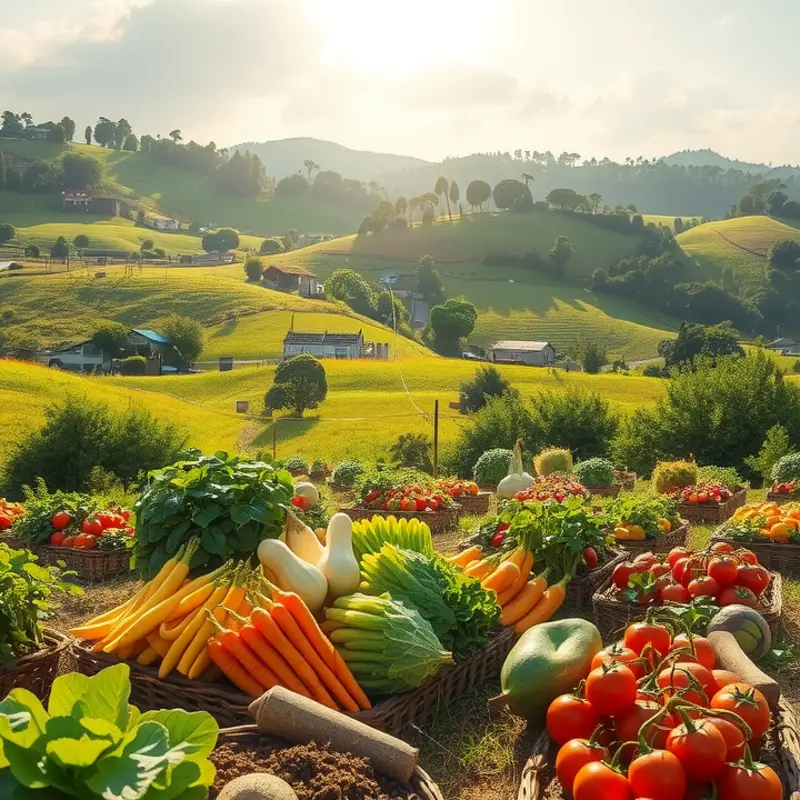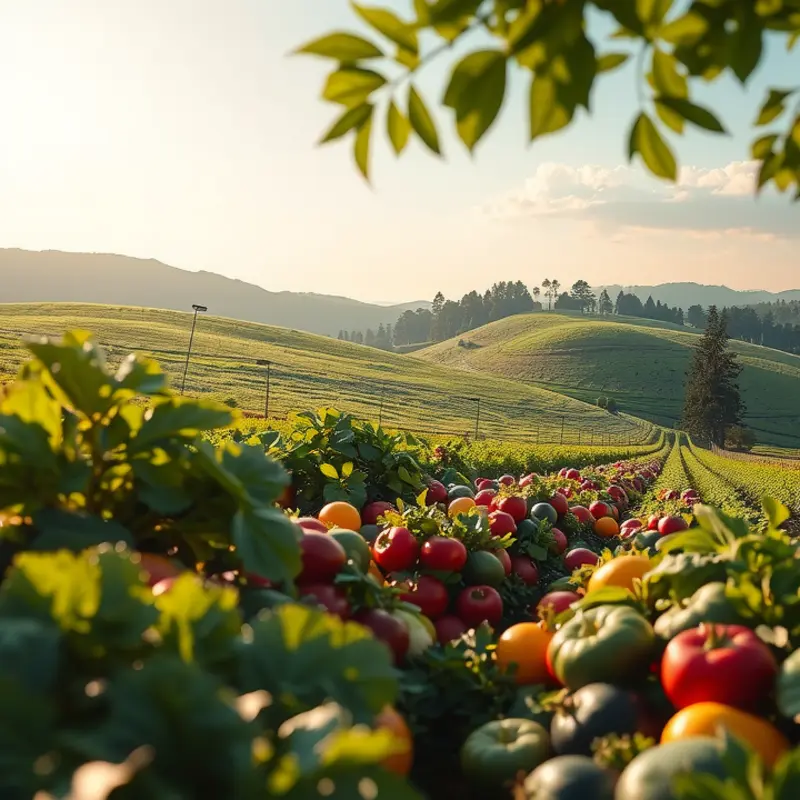The growing awareness of environmental issues has led many individuals to seek sustainable alternatives to traditional dairy products. As climate change and ecological footprints become pressing concerns, exploring plant-based options emerges not only as a personal health choice but also as an impactful way to protect our planet. This guide focuses on practical, eco-friendly dairy alternatives designed to support your health while promoting a sustainable future.
The Benefits of Plant-Based Dairy Alternatives

Plant-based dairy alternatives offer a wealth of benefits, making them a compelling choice for those seeking a sustainable lifestyle. These products are derived from a variety of plant sources, such as almonds, oats, and soy, providing diverse options for culinary creativity and dietary preferences.
One significant advantage of plant-based dairy alternatives flows from their environmental impact. Traditional dairy production is resource-intensive, requiring vast amounts of water and feed, alongside contributing to greenhouse gas emissions. In contrast, plant-based options typically require fewer resources. For example, oat milk production uses substantially less water than cow’s milk, thus conserving this precious resource. By choosing plant-based dairy alternatives, consumers can actively reduce their carbon footprint.
Another compelling reason to switch is the array of health benefits these alternatives offer. Many plant-based milks are enriched with essential nutrients, such as calcium and vitamin D, providing nutritional completeness akin to traditional dairy. They also tend to be lower in saturated fats, which can support heart health. For individuals with lactose intolerance or dairy allergies, these alternatives provide a digestible and versatile solution without compromising on taste or texture.
Economically, plant-based dairy alternatives are becoming more accessible and affordable. As demand grows, economies of scale come into play, reducing costs and making these products a viable option for more households. Many consumers appreciate the ability to purchase or even prepare their plant-based milks, contributing to a sustainable lifestyle choice that supports the pocketbook as well.
Moreover, incorporating plant-based dairy alternatives into one’s diet can be part of a broader shift towards a more plant-centric eating pattern. This shift aligns with various dietary trends that embrace minimal animal product consumption, supporting both personal health and global sustainability. Interested readers might explore our easy plant-based eating guide for additional insights into adopting a plant-forward diet.
Together, these ecological, health, and economic benefits demonstrate why plant-based dairy alternatives are more than just a substitute for traditional dairy—they represent a conscious choice towards a sustainable and nourishing lifestyle. By making this switch, individuals can play a positive role in protecting the environment, enhancing personal health, and supporting economic sustainability.
Delicious Recipes for a Dairy-Free Lifestyle

Many people assume that switching to a dairy-free lifestyle means sacrificing taste, but that’s far from reality. By using sustainable alternatives like coconut yogurt, cashew cream, and oat milk, one can craft delightful dishes that are both eco-friendly and flavorful. Here, we explore some recipes that will revamp your kitchen routine while supporting both your health and the planet.
Start your day with a refreshing smoothie. Blend a banana with a handful of spinach, a cup of oat milk, and a tablespoon of almond butter. Add a teaspoon of chia seeds for a nutrient boost. This combination is not only filling but also packed with essential vitamins and minerals that keep you energized.
For lunch, consider a creamy vegan tomato soup. Roast a pound of tomatoes along with garlic cloves and onions. Blend them with a cup of coconut yogurt and season with basil leaves and salt. This recipe offers the comforting creaminess of traditional tomato soup, opting instead for an eco-friendly coconut base.
The evening beckons for a savory dish. Prepare a mushroom and cashew cream risotto. Sauté a mix of mushrooms and garlic in olive oil, then add risotto rice. Gradually pour in vegetable broth, stirring consistently. Once the rice is softened, fold in a generous scoop of cashew cream seasoned with nutritional yeast, salt, and a dash of lemon juice. This dish is rich in umami flavors and highlights the versatility of cashew in reinventing classic recipes.
Treat yourself with a decadent dairy-free chocolate mousse for dessert. Melt dark chocolate and fold it into whipped aquafaba — the liquid from canned chickpeas, a surprising yet delightful egg white substitute. Sweeten with a hint of maple syrup and add a dollop of coconut cream for a luscious finish. This mousse not only satiates your chocolate cravings but also minimizes the environmental impact of traditional dairy-based desserts.
Maintaining a dairy-free lifestyle doesn’t require a complete overhaul of your food preferences. Instead, it’s about reimagining traditional recipes that are both familiar and innovative. Discover more ways to enjoy sustainable alternatives with this guide to non-dairy probiotics, ensuring your gut health remains optimal even without dairy.
By embracing these alternatives, you not only support a healthier you but also champion a more sustainable planet. Cooking without dairy can be just as delightful, and experimenting in the kitchen will open up a new world of flavors and textures.
Final words
Transitioning to plant-based dairy alternatives is not only a personal health decision but also a commitment to the environment. By choosing items like almond milk, coconut yogurt, or cashew cheese, you contribute to reduced greenhouse gas emissions, conserve water, and support sustainable farming practices. Empower yourself with delicious recipes that highlight these alternatives, and share your journey with others. Together, we can foster a healthier planet while enjoying a diverse and satisfying diet. Remember, every small step counts towards making a significant impact.








